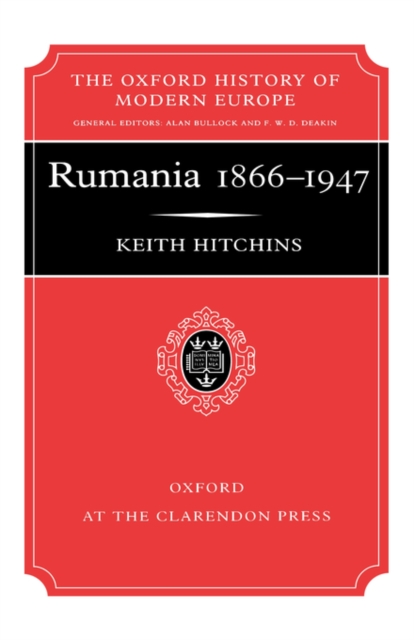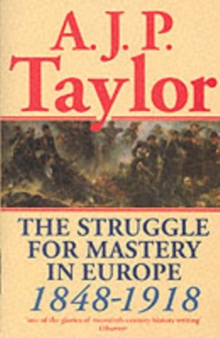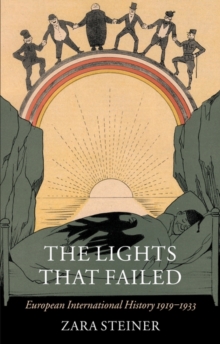
Rumania 1866-1947 Hardback
by Keith (Professor of History, Professor of History, University of Illinois, Urbana-Champaig Hitchins
Part of the Oxford History of Modern Europe series
Hardback
Description
From the mid-nineteenth century until the Second World War, the energies of Rumanian political and intellectual élites were absorbed by the building of their nation.
In this comprehensive and scholarly study Keith Hitchins traces these complex processes and explores how Rumania's leaders attempted to transform the ideology of modern nationhood into strong political, economic, and social institutions and to find ways of preserving independence in an international political and economic order dominated by the great powers. As the new Rumania took shape, the threads of historical continuity remained strikingly evident: in government a strong administrative centralization prevailed, despite the maturing of parliamentary institutions and the diversity of political expression; the national economy remained beholden to agriculture, despite the steady growth of industry; and in cultural life traditional values persisted, despite the adoption of modern forms.
In foreign relations the most pressing aim was to unite all Rumanians in a single state and to defend its sovereignty within an uncertain international order.
In all these endeavours, the measure of achievement was the West.
After the Second World War, when the Communist Party came to power, this historical continuity was broken.
The experiment in nation-building gave way to a new ideology, and Rumania now turned to the Soviet political and economic model.
Information
-
Out of stock
- Format:Hardback
- Pages:592 pages, map
- Publisher:Oxford University Press
- Publication Date:26/05/1994
- Category:
- ISBN:9780198221265
Information
-
Out of stock
- Format:Hardback
- Pages:592 pages, map
- Publisher:Oxford University Press
- Publication Date:26/05/1994
- Category:
- ISBN:9780198221265










